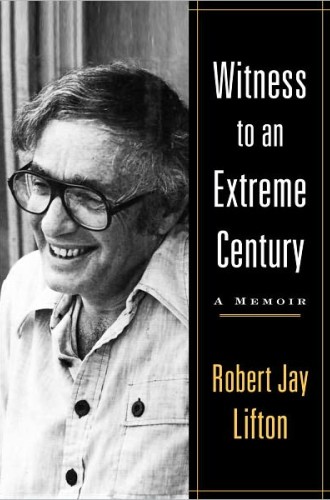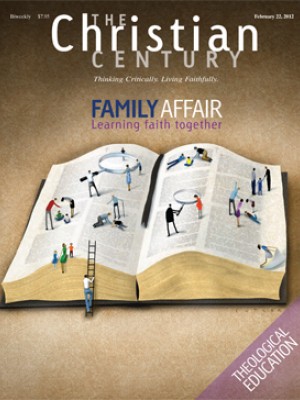Witness to an Extreme Century, by Robert Jay Lifton
Near the end of his memoir, Robert Lifton writes about Victor T., a Jewish doctor who had been an inmate at Auschwitz. While at Auschwitz he acted heroically, tending to patients in one of the camp's infirmaries and often endangering his own life in order to save theirs. Yet when Lifton went to interview Dr. T in the late 1970s, he found that he was haunted by his actions at Auschwitz, critical of himself for perceived failures and for things that he did in order to survive. Lifton had witnessed this same self-criticism in an American soldier who had refused to participate in the My Lai massacre. He began to discern a link between the capacity to be self-critical and the capacity to resist evil. It was one of the more startling insights that he gained in a lifetime of studying evil and atrocity.
Lifton has spent his career interviewing people who participated in traumatic historical events and trying to understand how cultural, governmental and religious forces can manipulate and change a person over time—and how some people can resist. In the process he has become a critic of rigid dogmatism. He was a leading advocate in the anti-nuclear armament movement and the peace movement of the Vietnam era.
Read our latest issue or browse back issues.
Lifton found his life's work by accident. As a U.S. Air Force psychologist in the early 1950s he interviewed recently repatriated American POWs who had been victims of the Chinese government's efforts at thought reform. He later interviewed French missionaries and Chinese refugees who had been subjected to the same brainwashing techniques. His study launched his career as a psychologist of war and violence. Some of his essential insights from that early work followed him into subsequent studies of nuclear holocaust survivors in Hiroshima, Vietnam veterans, and German doctors who willingly served in concentration camps during World War II.
Witness to an Extreme Century is essentially a retelling of those studies. It is the memoir of a man whose life has been lived mostly in the mind. Family members get only passing references, and when he devotes time to stories of friendships, they are rarely interesting. Lifton details how his studies shaped him, changing his politics and bringing him into close contact with many prominent Americans in the second half of the 20th century. He did his work in opposition to totalism—attempts by political or religious groups to exert complete control over people's minds. One of the great tragedies of totalism, he says, is that it corrupts a particular cultural genius, taking what is good in a society or a religion and amplifying it to the exclusion of everything else until it ceases to be good and becomes monstrous. Each of Lifton's studies touched on totalist mind-sets and the atrocities that they produce.
Lifton, who describes himself as a spiritually committed nonbeliever, often found himself in close contact with religious people who were active in resisting totalism. He was a friend and admirer of the Berrigan brothers, Daniel and Philip, as well as William Sloane Coffin and many other Christians who were active in the antiwar movement. When he was working in Hiroshima, he became acquainted with a man whom he called "the zealot saint," a survivor of the bombing who had converted to Christianity and become an unbending antinuclear advocate. Lifton found this man to be a humorless and difficult companion, but couldn't help admiring him.
His admiration extended more easily to a zazen practitioner who sat in meditation at the Hiroshima memorial whenever there was an atomic bomb test. At first the protest seemed of minor interest, but in time Lifton began to admire the spiritual power of this man, who insisted that a "chain reaction of spiritual atoms must defeat [a] chain reaction of material atoms."
This man also helped Lifton articulate one of his alternatives to totalism: radically expanding one's sense of community so that it includes not just the group that you belong to or the community you serve, but all of the people whom you are able to encompass in your moral imagination. As he sat in meditation, the man, who had formally supported the Japanese imperial efforts that led to World War II, understood that he represented millions of people in his protest, including the 200,000 people who had died when the bomb was dropped.
In contrast to this man's capacity to widen and deepen his moral imagination, the Nazi doctors Lifton interviewed were often psychically numb. They lacked the ability to be self-critical, which seems to be a key component of morality. These doctors had divided themselves so they could be killers when in the camp but loving fathers and husbands when they went home on leave. When the daughter of one of these doctors asked Lifton whether a good man could do bad things, he responded simply: "Yes, but then he's no longer a good man." Lifton wasn't arguing against redemption but making a claim for moral coherence. People who are truly good strive to have the same morality in every situation and to subject themselves to the same moral scrutiny no matter the setting or circumstance.







